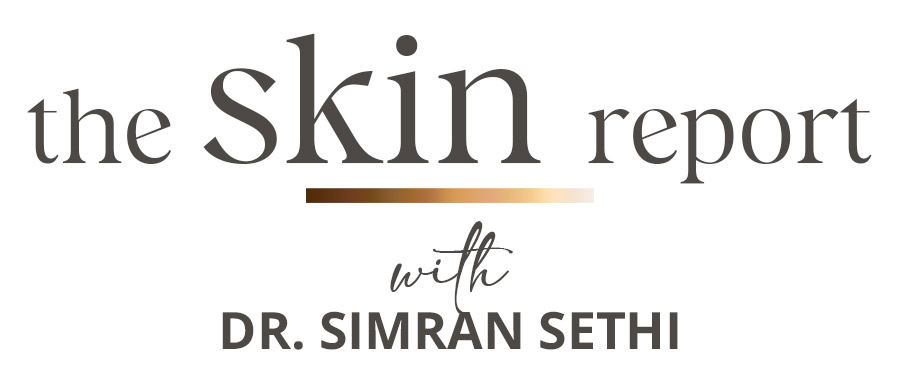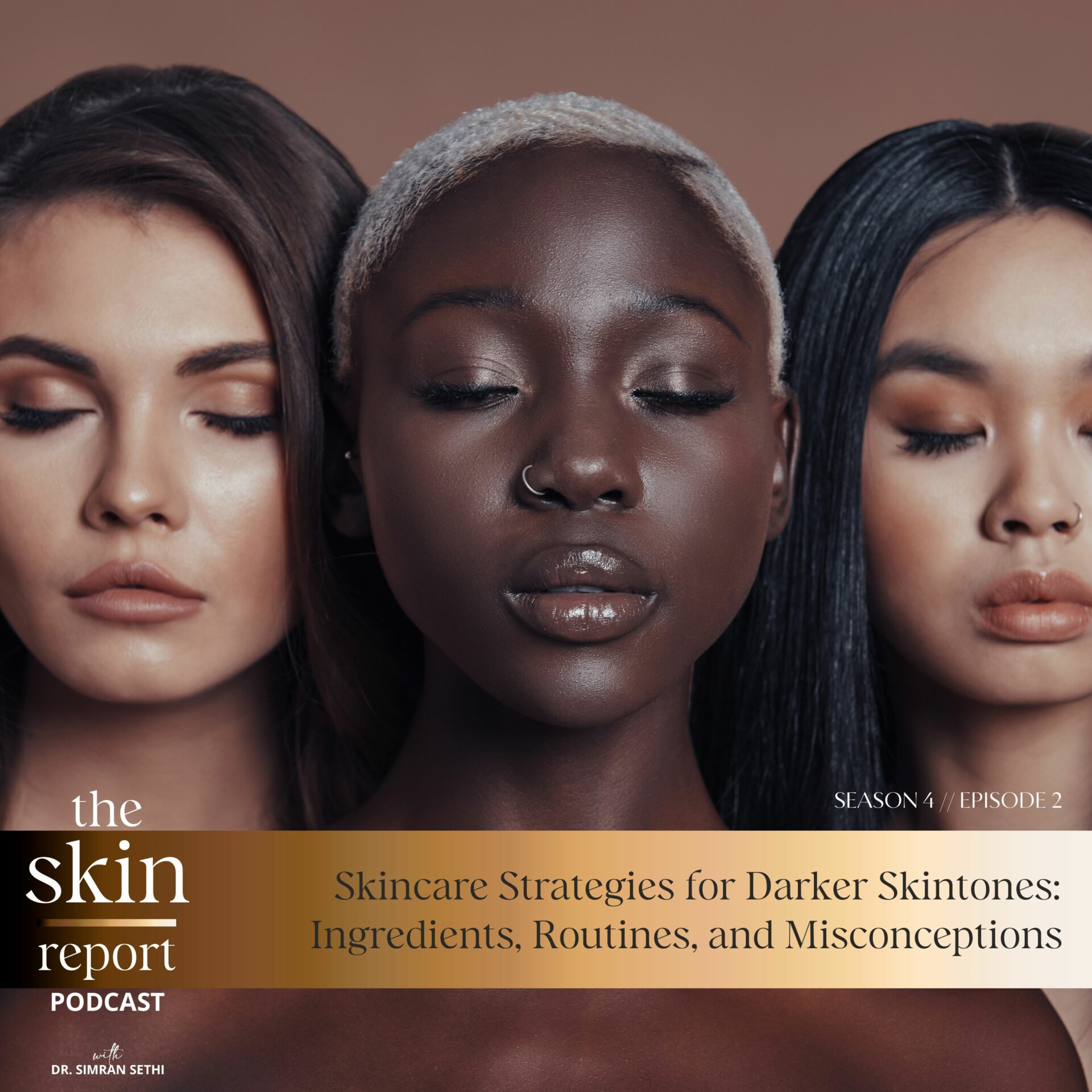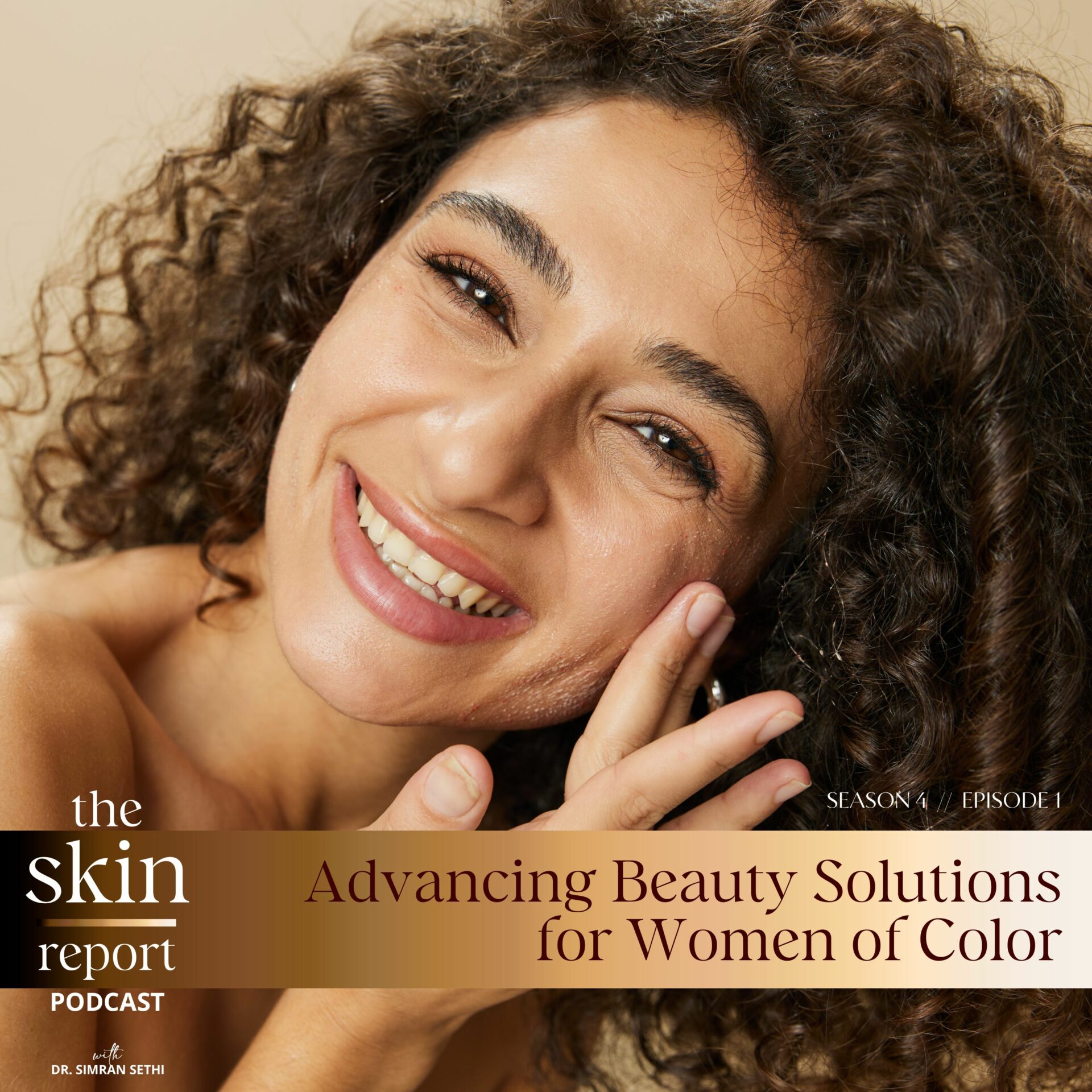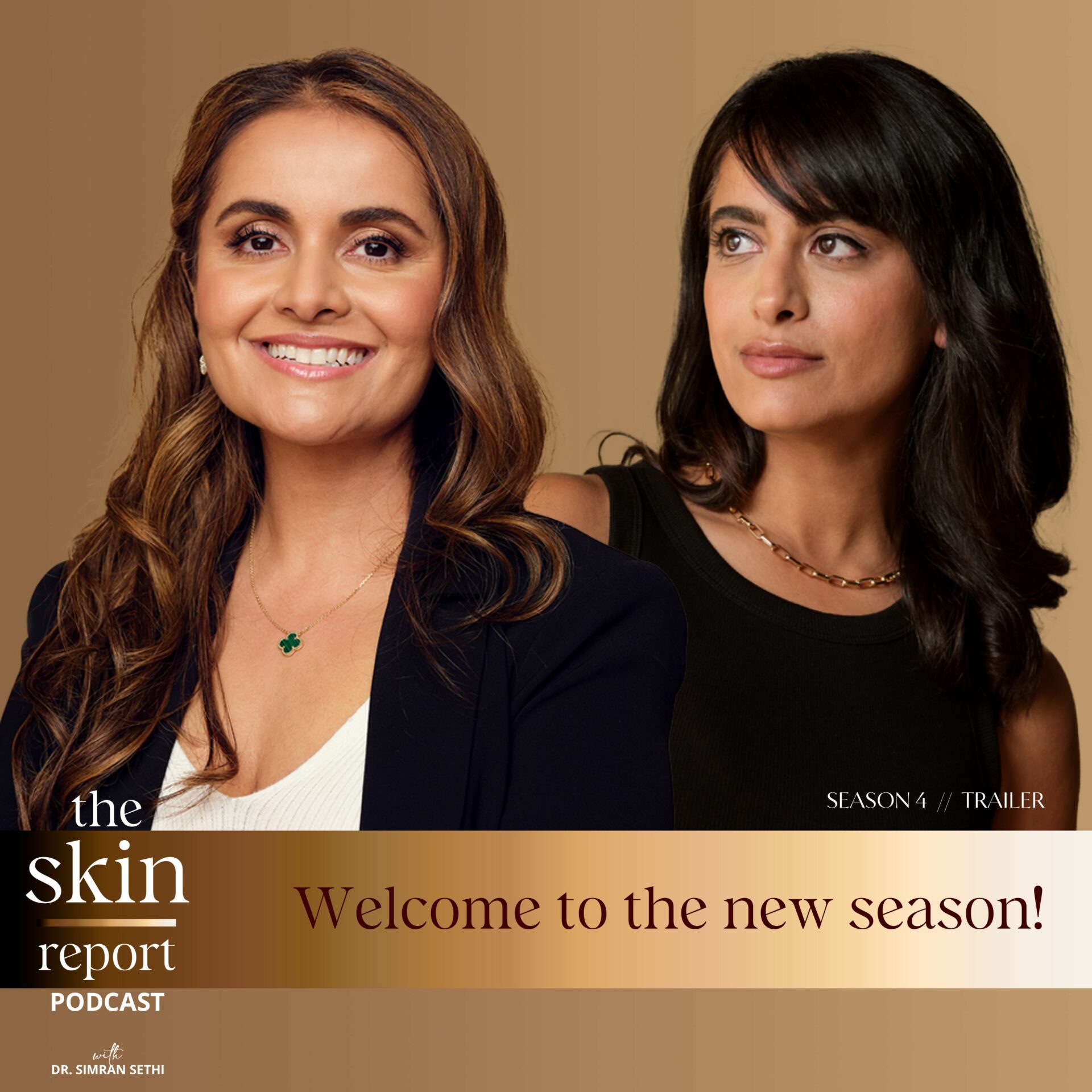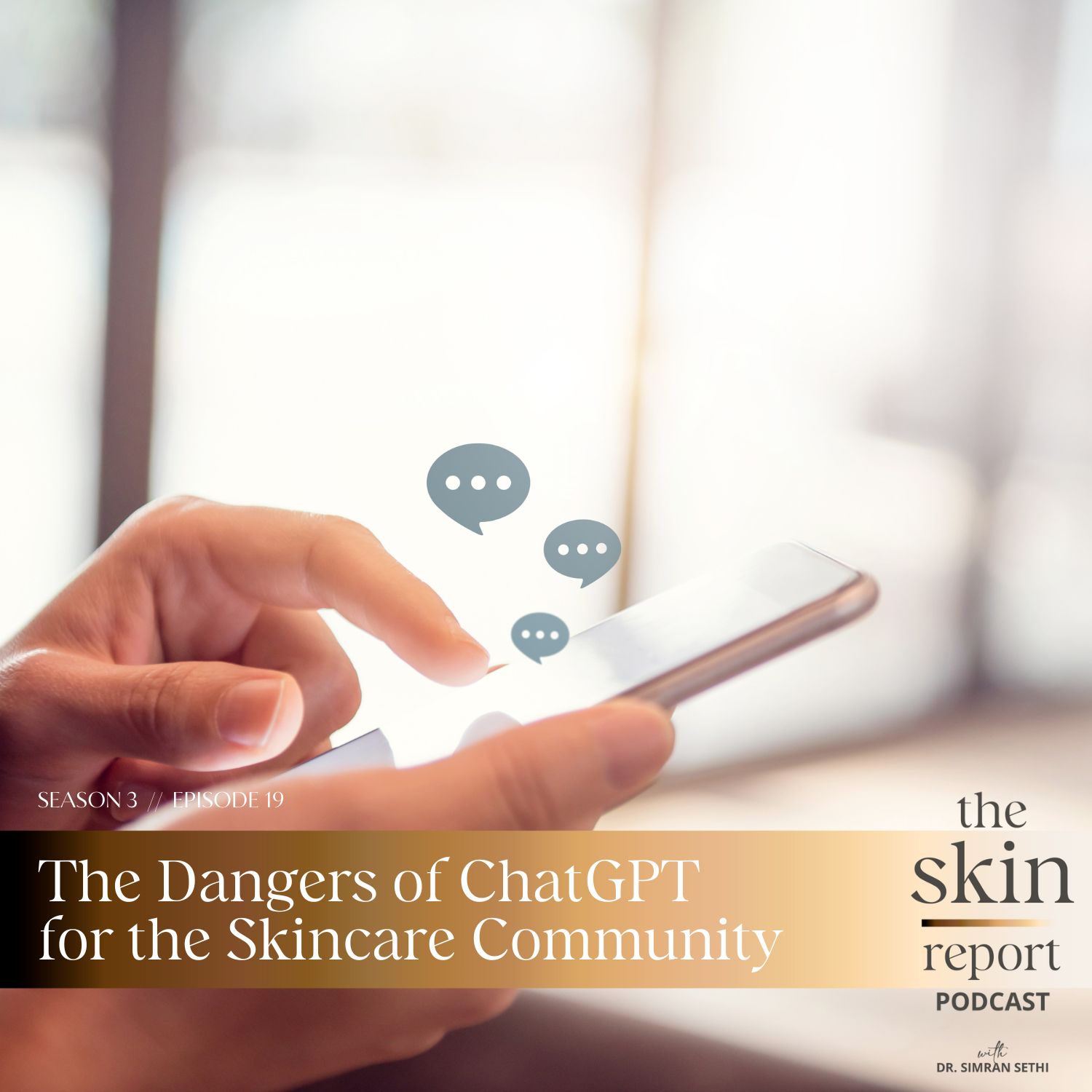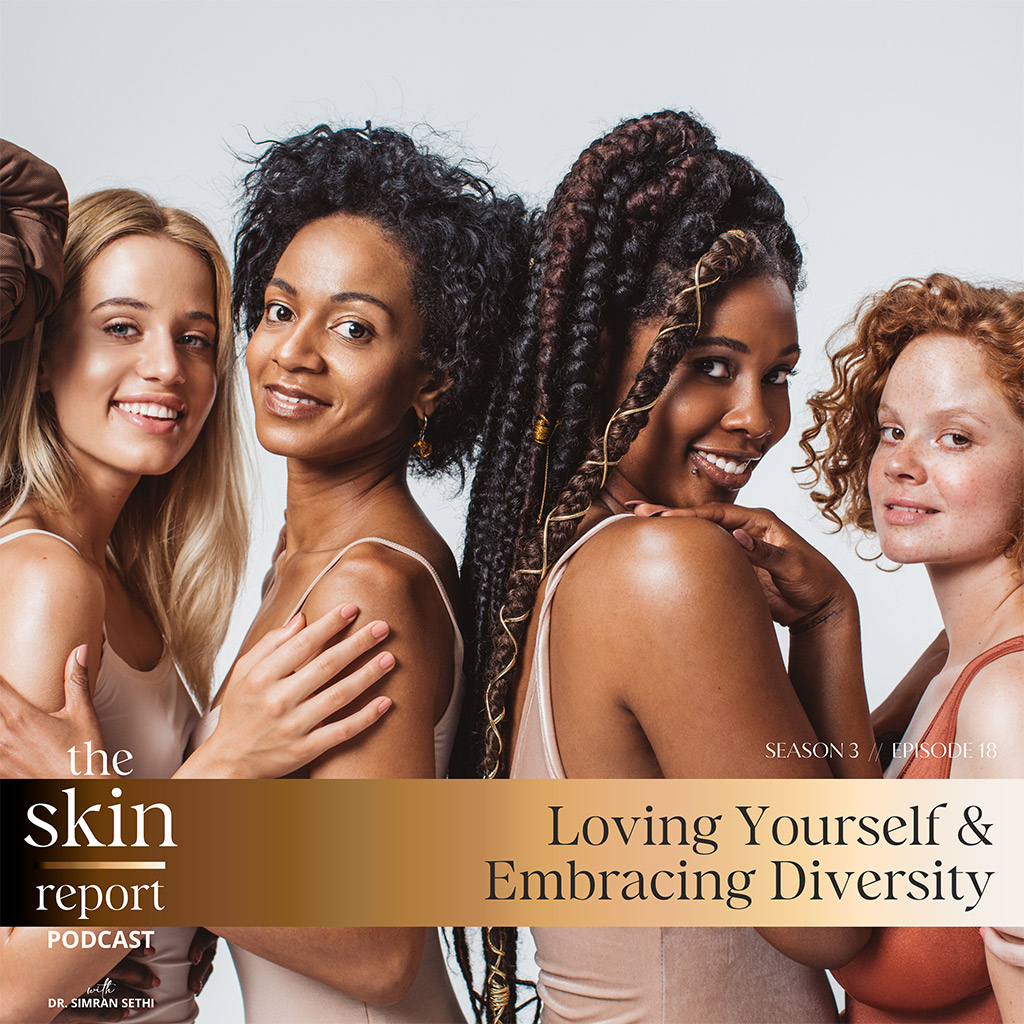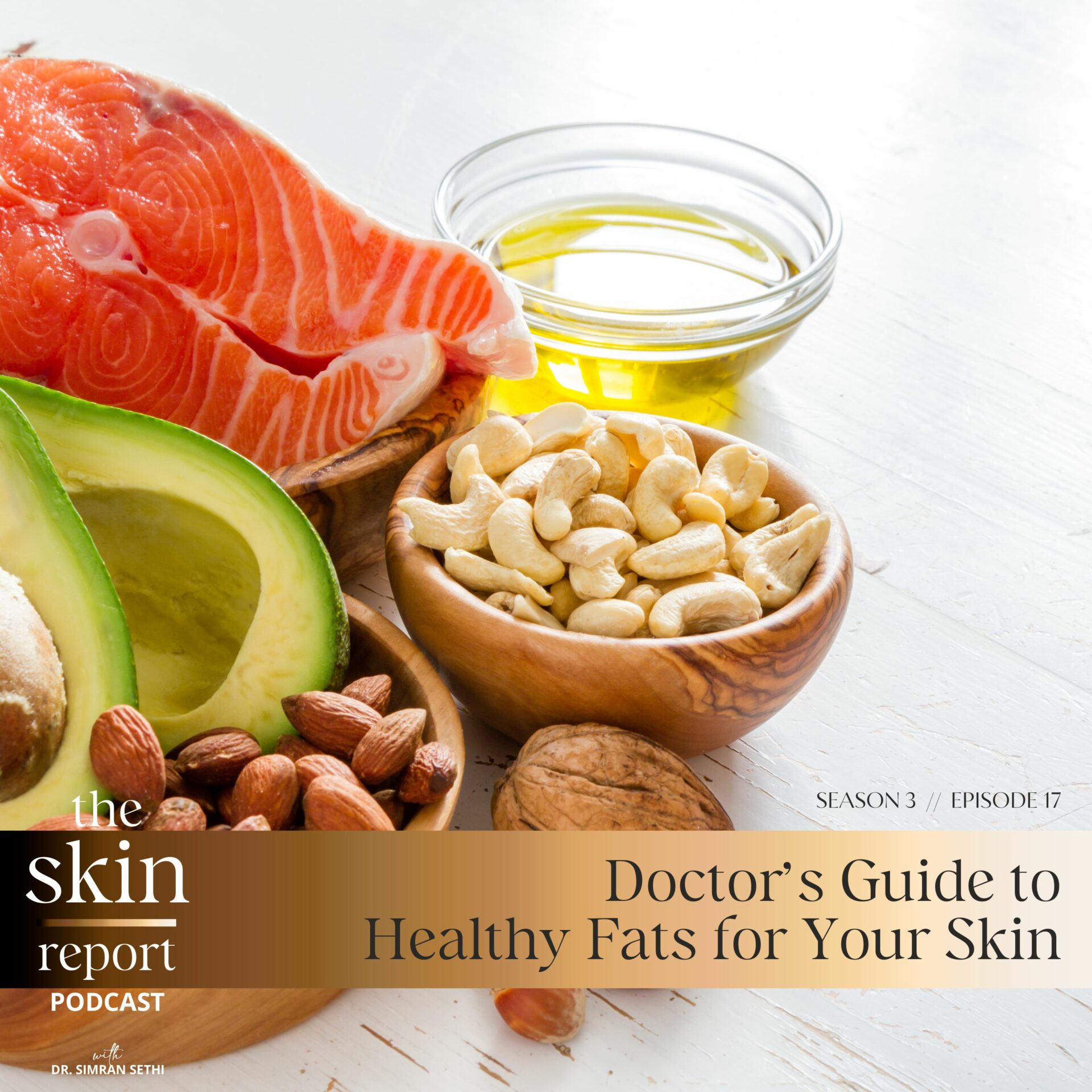How Sleep Impacts the Skin
We all experience restless nights every so often, but could excessive tossing and turning, late bedtimes, and insufficient sleep be detrimental to our skin’s health and appearance?
In this episode, host Dr. Sethi is joined by a special guest, Dr. Anil Rama, to discuss sleep hygiene and its impact on our skin and overall physical health. Dr. Rama is a neurologist and an expert in sleep medicine who founded and is the Medical Director of Saratoga Sleep and Brain, previously developed and led Kaiser Permanente’s tertiary sleep medicine laboratory and serves as Adjunct Clinical Faculty at the Stanford Center for Sleep Sciences and Medicine. In this episode, Dr. Sethi and Dr. Rama discuss the many ways that healthy sleep can benefit our skin and improve our overall wellness. Their enlightening conversation surrounds topics like “beauty sleep,” the adverse effects of poor sleep practices, and ways people can improve their sleep quality.
As the founder of RenewMD Beauty Medical Spas and a woman of color, Dr. Sethi is dedicated to spreading science-backed skincare information on The Skin Report. Listen to this episode for more insights on healthy sleep practices for healthy skin!
Follow and DM a question for Dr. Sethi to answer on The Skin Report Podcast:
Renew Beauty Instagram:
https://www.instagram.com/renewmd_beauty/
RenewMD Beauty Medical Spas, California:
https://renewmdwellness.com/
Dr. Sethi on TikTok:
@SkinByDr.Sethi
Glass Skin Trio Special Offer 25% off Promo Code: GlassTrio25
Skin By Dr. Sethi – 15% OFF for new customers: GLOW15
https://books.google.com/books/about/SHUT_Up_and_Sleep.html?id=RTxNvgEACAAJ
Sleep statistics from the Centers for Disease Control and Prevention referenced in “Why Sleep Matters—The Economic Costs of Insufficient Sleep”
https://www.ncbi.nlm.nih.gov/pmc/articles/PMC5627640/
Publication in the National Library of Medicine titled “Circadian Rhythm and the Skin: A Review of the Literature”
https://www.ncbi.nlm.nih.gov/pmc/articles/PMC6777699/
Clinical trial study on the association between perceived stress and impaired cutaneous wound healing titled “Perceived stress and cortisol levels predict speed of wound healing in healthy male adults”
https://pubmed.ncbi.nlm.nih.gov/15110929/
A study on “Insomnia Complaints and Perceived Immune Fitness in Young Adults with and without Self-Reported Impaired Wound Healing”
https://www.ncbi.nlm.nih.gov/pmc/articles/PMC9412748/
A 2017 study on the “Negative effects of restricted sleep on facial appearance and social appeal”
https://royalsocietypublishing.org/doi/10.1098/rsos.160918
A research article published on “Periocular Dark Circles: Correlates of Severity”
https://www.ncbi.nlm.nih.gov/pmc/articles/PMC8460477/
2015 study on poor sleep quality and skin aging titled “Does poor sleep quality affect skin ageing?”
https://pubmed.ncbi.nlm.nih.gov/25266053/
A publication on “Brain-Skin Connection: Stress, Inflammation and Skin Aging”
https://www.ncbi.nlm.nih.gov/pmc/articles/PMC4082169/
A study on the “Effects of Sleep Quality on Skin Aging and Function”
https://media.cleveland.com/health_impact/other/Lauder%20Sleep%20Skin%20Study%202013%20IID%20Poster%20%202013%20final.pdf
The Center for Disease Control’s “Tips for Better Sleep”
https://www.cdc.gov/sleep/about_sleep/sleep_hygiene.html
A 2019 study on “Acne Severity and Sleep Quality in Adults”
https://www.ncbi.nlm.nih.gov/pmc/articles/PMC7445853/
The Risks of Sleeping “Too Much” – a Survey of a National Representative Sample of 24671 Adults (INPES Health Barometer)
https://www.ncbi.nlm.nih.gov/pmc/articles/PMC4165901/
Research on “Sleep Duration and Biomarkers of Inflammation”
https://www.ncbi.nlm.nih.gov/pmc/articles/PMC2635584/
“Biological Rhythms in the Skin” published in 2016
https://www.ncbi.nlm.nih.gov/pmc/articles/PMC4926335/
The study “Regular Late Bedtime Significantly Affects the Skin Physiological Characteristics and Skin Bacterial Microbiome”
https://www.ncbi.nlm.nih.gov/pmc/articles/PMC9188400/
A study on the “Effects of bathing-induced changes in body temperature on sleep”
https://www.ncbi.nlm.nih.gov/pmc/articles/PMC10486043/
Research in 2023 “Physiology, Integument”
https://www.ncbi.nlm.nih.gov/books/NBK554386/
A 2015 study titled “Does the hair influence heat extraction from the head during head cooling under heat stress?”
https://www.ncbi.nlm.nih.gov/pmc/articles/PMC4667044/#!po=91.6667
Your Face Pillow
https://yourfacepillow.com/
A 2013 study on “Effect of sleep position on perceived facial aging”
https://pubmed.ncbi.nlm.nih.gov/23865987/
A 2019 study on “The impact of sleepwear fiber type on sleep quality under warm ambient conditions”
https://www.ncbi.nlm.nih.gov/pmc/articles/PMC6716586/
This transcript was exported on January 26, 2024 -view latest version here.
I know that so many women who listen to our show are either close to or in menopause and are starting to experience changes in their skin, weight and sleep.
As an internal medicine doctor and a woman in my forties, I know the importance of women optimizing their health during this hormonal transition, through options like bioidentical hormone replacement therapy. Our brand new sponsor, Winona, is here to help women who are dealing with menopause or perimenopause. Winona is a collection of OB-GYN health professionals who believe that symptoms are important, real and deserve to be taken seriously. Winona is the home for tradition prescribed bioidentical hormone replacement therapy with an easy-to-use network of doctors based in your state, who can make getting started with HRT increase. Winona’s bio-identical HRT is made from plant-based hormones rather than synthetic ones, so it aligns with your body’s natural rhythm to also release some hot flashes, weight gain, and other uncomfortable symptoms. 80%of women who use Winona find relief within just 90 days. Visit bywinona.com today to start your pre-visit. With free US shipping and the ability to pause or cancel at any time, your path to wellness has zero obligations. Use the code SKINREPORT bywinona.com for 25% off your first order. That’s B-Y-W-I-N-O-N-A.com/skinreport.
Skincare can sometimes feel overwhelming, whether it’s finding the right products, ingredients or treatments. There’s a lot out there, but not always for people of African, Hispanic, Middle Eastern and Eastern South Asian descent. That’s why I set out to educate myself and others so that we can all feel beautiful in our skin.
Hello, welcome back to The Skin Report. I’m Dr. Simran Sethi, an internal medicine doctor, mom of three and CEO and founder of Renew MD Medical Spas and Skin by Dr. Sethi.
On this episode, I’m delighted to have the opportunity to interview Dr. Anil Rama, a neurologist who is an expert in sleep medicine and the special guest of today’s show. Dr. Rama is the founder and medical director of Sarasota Sleep and Brain, and previously developed and led Kaiser Permanente’s tertiary sleep medicine laboratory, and serves as adjunct clinical faculty at the Stanford Center for Sleep Sciences and Medicine. He also authored a book, SHUT UP and Sleep, which provides a unique look at how our breathing impacts our sleep, and leads readers on the path to better sleep and better health. Today we’re going to learn how healthy sleep can benefit our skin and improve our overall wellness.
Dr. Rama, thank you so much for taking the time to join us today. You have spent your entire career focusing on sleep health. What prompted you to pursue this area of study?
Thank you Dr. Sethi, first of all, for welcoming to the podcast. I was doing a rotation in sleep medicine as just part of my usual residency and fellowship at Stanford. One thing that struck me was how universal sleep was, how it had the profound effect on every aspect of human health and well-being. That’s truly unique, and I can’t really say that that was what I experienced elsewhere. It seems like there’s a strong link between sleep and almost any chronic disease. There were so many technological advancements that were occurring at the time, with possibility of preventing health problems by improving sleep. This is 20 some years ago, and it’s interesting that same things are still happening now.
The United States has a very strong work culture, and we work around the clock. I think the importance of understanding sleep health, I think it’s even more important now. You see a lot of people, of course, in your practice with sleep issues. What function of sleep do you find to be most influential to our overall wellness? Is it the length of time people are sleeping, the quality of sleep, the time at which they’re sleeping? When I say that, I’m referring to nighttime workers. Some people work night shift, and they sleep during the day. Are any of these factors important or more important in overall wellness?
I look at it a little bit differently. I look at what could be the most important aspects of sleep. What does sleep contribute to your well-being. So when you sleep, it’s important for your memory consolidation. You form memories, you stabilize memories, and that’s what we need to learn and attain information.
Also, it’s linked to our cognitive functions and decision-making. We need good sleep for attention, and to be able to solve problems, and just make wise decisions in life. Probably more importantly, for most people, is emotional regulation. If you don’t sleep well, you have mood disturbances, you’re more stressed, your ability to regulate yourself, your emotions, it declines. And then there’s the ability to just… There’s the more physiologic… Sleep regulates your hormones, and these hormones affect your appetite, your stress, metabolism. Those ways, I think that’s what I find the most important aspect of sleep and health.
Right. We’ve all heard the term beauty sleep. Do you think there is any scientific evidence to back that up? I know that there aren’t probably things that directly address beauty sleep, but what I mean is the effects of lack of sleep or poor sleep on organs like the skin.
Yes. I tell my patients that, “if we don’t fix your sleep, you’re going to age more. You’re going to look older before you… and you’re going to look beyond your stated age.” So when you have poor sleep, it does impact the skin, and I think it’s often overlooked. The skin is the body largest organ, and people don’t normally think of that. In what ways does poor sleep affect your skin? Number one, it can, like I said, lead to more accelerated aging. During sleep is when you restore yourself and you repair yourself. During slow-wave sleep is when you produce growth hormone, and growth hormone helps restore and rebuild the body, including the skin. When you have sleep fragmentation or an insufficient sleep, you just don’t get slow-wave sleep you otherwise would. That may lead to wrinkles and sagging skin.
Sleep is also important for the skin’s barrier functions, so if you don’t get good sleep, you can be vulnerable to external toxins, and you can lose moisture through the skin. It’s almost like mouth breathing. You can dehydrate, almost like skin breathing. You can release your moisture through the skin. Anyway, sleep deprivation weakens the skin barrier, so to speak, and can lead to dryness. You lose your elasticity, and it’s more sensitive, if you don’t sleep well. It increases the stress hormones. I feel like there’s cortisol, the stress hormones, or anything that diminishes sleep or impacts sleep will increase your cortisol levels. That can lead to oiliness, acne breakouts, exacerbating, psoriasis, eczema. We’ve all had that experience where we’re stressed out, we break out.
And then the other thing that sleep does is… We’ve all noticed a person with puffy eyes, dark circles around their eyes. That’s usually due to poor circulation. The skin under the eye, the thinnest skin in the body, and the blood vessels are pretty apparent. So when there is [inaudible 00:08:40] cooling up there and maybe not draining into the nose, you can see those dark circles and eyes, which obviously don’t make you look good.
Like I said, nighttime is the time to restore and repair. During the daytime there’s [inaudible 00:08:54], there’s UV light, and pollution and who knows what. And then at night, that’s when you can be a… Just like your brain cleanses itself with the lymphatic clearance system for amyloid and tau, your skin cleanses itself at night.
I think the last thing I’d probably want to mention is the collagen. Sleep is important for collagen production. Collagen gives your skin firmness and elasticity. If you keep depriving yourself to sleep, it can reduce your collagen. Obviously that would lead to your little fine lines and wrinkles and whatnot.
When you were describing all of this, you could almost become an aesthetic doctor because you pointed out exactly the same thing that I actually typically talk about in my podcast or explain to my patients about the importance of skin barrier function, the importance of rest at appropriate times. Because our skin, like you already pointed out, was that it has a circadian rhythm. Just like the other organs in our body, at nighttime, it goes into repair mode. That’s why we actually use certain skincare products at night versus in the morning, because at night our skin, and just like our entire body, is regrowing and doing other things.
You also mentioned the importance of stress hormones and high cortisol levels leading to signs of skin aging. Do you find that there are certain age groups that have a greater tendency to have increased cortisol levels because of lack of sleep? I’m thinking back into my years as a medical student or a college student, and then a medical student, and then a mom, and now a professional. I feel that if I sleep less now versus when I was younger, I could still spring back into the day and probably look pretty decent, but I don’t think my body can handle that now. Do you think that’s cortisol, or do you find that be typical of most people you see?
The skin’s the largest organ we mentioned, and I really don’t think it’s that much different than the brain which I focus on. I’ll give you as an example, the first time you forget where your keys are and you start showing signs of Alzheimer’s, that process started 20 years ago when you started gathering amyloid and impacting the cells and later the tau. Even there’re some… I’m not a skin expert, but it could be most of your sun exposure before the age of 18, but you don’t get the cancer until later, and the wrinkles and whatnot. The same thing with sleep apnea. A lot of patients have tonsillitis as a kid and ear infections and whatnot, but they may not present until they’re 45, 50 years old to the doctor’s office for frank apnea. So I think the processes start at a very young age, but no one sees it. Maybe you lose the baby fat in your face, and that’s when you start seeing the sunken cheeks and whatnot.
But that may not happen until their twenties. So I think the answer to your question is, yeah, I think you just start early, but you have a reserve. And as you get older, you lose that reserve, and then the deficiencies manifest itself.
What lifestyle changes do you think people can make to improve their quality?
Proper sleep hygiene, as they call it, is always helpful. Try to have a consistent sleep schedule, go to bed at the same time, wake up at the same time. Even on the weekends, if possible. That’ll help regulate your body’s internal clock, make sure an environment is good. Your body typically cools down before it goes to bed, and then somewhere in the middle of the night it starts to warm out. But anyway, you can just make sure your bedroom is quiet, dark. You can use blackout curtains, great. Earplugs, white noise machine. You want to limit green time before bed. Remember the [inaudible 00:13:05] you get out there, they slept outside, under the moon, and it was cool. They had a little bit of light, and the sun would rise gently. They usually slept on a thin, thin, super thin blanket, if anything at all. Their head was minimally popped up, most of the time.
I’m guessing they didn’t eat heavy meals and drink caffeine and alcohol before bedtime. Good physical activity. If you exercise well, especially in the morning, you don’t want to do it too close to bedtime because after you work out intensely, your heart rate can stay elevated for hours. You don’t want to be doing that close to bedtime. It’ll keep you awake. And then relax before you go to bed, read, take a warm bath, an hour or two before. That’ll cool you down before you go to bed. And then if you want to meditate and rid your stress in any way you can, and avoid naps during the day. Anyway, those are the basic sleep hygiene things. I’m sure people can Google that.
Does the time you go to sleep matters? Is it better to go to sleep early or does it even matter to go to sleep late and wake up late, and still get them that same number of hours?
In general, you should go to sleep when you’re sleepy and wake up when you’re not sleepy. People who have normal cycles. Then there’s the night owls that like to go to bed late and wake up late. Then you’ve got the early morning, the larks I guess, and they like to go to bed early and wake up early. They’ve actually shown some data where the night owls actually are a little more prone to various, maybe health issues versus the larks. But in general, as long as you go to bed and you sleep seven to eight hours, seven and a half hours and you wake up feeling refreshed, I think you’re good. I don’t want to be of 7nitpicky and say it should be at a certain time. But if you can sleep a consolidated period of time and feel refreshed, and not feel like you need to take a nap during the day, I think that’s healthy.
What time do you go to bed?
I aim for 10:30, but it ends up being like 11:00, 11:30.
Yeah. What time do you wake up?
I wake up at 6:30 every morning.
Does it matter what time you go to bed or you just naturally wake up at 6:30?
If the alarm wakes you up, that makes you’re pretty tired. If you wake up before the alarm, that means you’re probably getting enough sleep. I think the alarm usually wakes me up, so I need to get more sleep.
I actually have exactly the same schedule as you. The alarm does wake me up, but I never thought of it as that means that I should be sleeping longer, I guess.
Yeah, sadly.
Yeah, that’s right. You talked about people who tend to sleep a little later, maybe some data suggesting that maybe a few have more chronic conditions. Do you have any particular data on people who are night shift workers, the ones who actually are sleeping during the day because they work at night and health in general?
They’re completely debilitated most of the time, because rarely do those individuals work seven days a week.No one works seven days a week. So what typically happens is they have to do this night shift for five days a week, let’s just say. And then for the other two days, they may not sleep in that same cycle. Your body has these cycles and it learns these cycles. It can be re-taught in certain ways, but it’s very confusing to the body to be releasing hormones at a certain time and then suddenly shift to a different time when they’ve changed their schedule. Night shift workers are typically chronically sleep-deprived, because they work at night, they wake up and they usually don’t get that full sleep because it’s the middle of the day. They’re typically sleep-deprived. As a result, they usually have mood disturbances. They can be unfocused, inattentive. They can be depressed or sad. They can have anxiety and worry about things. They can have reduced mental acuity and be forgetful.
They try to mitigate this by changing the type of light people use at work at night, and whatnot, to keep them more focused. But it’s just not a win-win situation. Even if you could do it seven nights a week and keep it steady, you may be able to train your body to do that in some ways. But there is this circadian rhythm that’s built in that goes again.
All right.
In any case, it’s not an ideal situation.
I have to say, in my practice in aesthetics, what I’ve found very interesting is that there are quite a few younger people, men and women, in their late twenties, mid-thirties coming in with, I would say, more age-related skin and hair issues that we would not expect in their age group. Something that’s exceedingly common, especially in the San Francisco Bay Area where I practice and where you practice, it’s the fact that many people work remotely and they work with teams around the world.
So I’ve noticed that people will come in with issues with excess acne, and this is in their mid-twenties, late-twenties, which is typically a period where we wouldn’t expect skin issues. A lot of issues with hair loss related to stress. The most common thing I hear is, “Well, I work during the day here because I’m local. I’m in the US. But then I have teams in India or China, and I’m on a call with them at 3:00 AM, or work with them from two AM till 6:00 AM.” Even if you’re not a night-shift worker, if you’re, I think, in an industry where there are remote workers or teams in other countries, this can really be a problem. I think it’s more common, and we can see the effects of that on our hair and skin, even more now in younger people.
Yeah, I think there’s two things to point out, two different categories. One is that you said the entire lifestyle of modern, at least, American society and maybe international society, who knows, is sleep deprivation. We’re all staying up late, and the internet has made us be connected. Now we’re taking calls at 4:00 in the morning, or we’re taking calls with India at 8:00 PM at night. Who knows, right? Asia. That’s highly disrupting to your sleep. The second thing is, just from a different perspective, all the processed foods we eat, all the allergens that we have by living indoors and whatnot, the abnormal lifestyle and the surroundings, the environment we have, and what we invite have negatively affected our sleep. So it’s a double whammy. Not only has our sleep been disrupted in terms of getting good consolidated sleep, it’s the quality of sleep is being impacted as well.
So combined with that, your skin can’t repair itself and renew itself, as I said, which happens during sleep. Your cortisol levels are almost always elevated, which ruins your… It can cause acne, your melatonin production, which usually should be higher at night, maybe you don’t get as much. And then you don’t get the blood flow to your skin at night. When you’re in the fight or flight response, the blood goes to your core, and then you’re ready to do anything. And then when you’re in the rest and digest, the parasympathetic nervous system, everything goes out to the extremitory. You’d expect all the blood flow to go towards your skin, and blood heals. That’s the whole premise of hyperbaric oxygen therapy, right? Carrying more oxygen in your blood. If you’re not going to get that blood to your skin, you’re just not going to… Anyway. And why would that not happen? Well, you don’t get as much rest and digest. That’s parasympathetic nervous system
When we’re sleeping and we’re repairing, its goal is to prioritize organs like the brain and the heart. So unfortunately, even though the skin gives us all a protection, it makes us look healthy, it’s probably the least prioritized when it comes to repair. Like you said, the less sleep you have, or the more trouble that sleep is, or the likelihood of your skin getting attention for all of that repair and restoration from your body, it’s going to reduce. Is there such a thing as too much sleep, to the point where it can have negative implications on your health?
Yes. There’s a bimodal, I guess, graph for sleep. You’re at increased risk of morbidity, which just means more bad things can happen to you, if you sleep too little. Which we all can imagine. But similarly, more bad things can happen when you sleep too much. People who sleep fewer than six hours a night are probably at a disadvantage in terms of health, but people will probably consistently sleep more than nine hours at night are also at a disadvantage. I don’t know if they really sorted out exactly why. There could be a reason why. Perhaps, maybe something wrong with your sleep as to why you’re sleeping too little or too much, and that’s absolutely part of the case. I don’t know if it’s just the actual act of sleeping that much. I don’t know if they’ve really sorted that out. More sleep is… Just like, water’s good, but too much water can be toxic. In that sense, both are bad and you want to just stay in that range of six to nine hours, I think, somewhere loosely in that range.
Okay. Are there people who just naturally tend to sleep longer, and that’s healthy for them? But you’re saying that about nine is the cutoff for it being considered healthy and natural?
It’s rare. People who… There’re short sleepers, and there’re long sleepers. It’s rare, but once you get to 11 hours of sleep at night, you actually go into this condition called idiopathic hypersomnia. I guess what I’m saying is maybe that nine to 10 range or nine to 11 range hours could be just borderline. Maybe, it can be the normal range, just need more, I suppose. But that’s unusual. Now, I’m not talking about recovery sleep. I’m not saying, Oh, okay, you’re asleep five [inaudible 00:23:49] weeks up every day during the week, and then on the weekend you sleep for 11 hours. That’s fine. I’m talking to someone on a regular basis, who needs nine plus hours. It’s a little unusual.
Okay. I would imagine that that would also interfere with functions like work and study and so forth.Yeah, it’s also age related too. If you’re younger, obviously you need more sleep, but I’m assuming we’re talking just a regular adult?
Exactly. I’m going to shift my conversation to more about products related to sleep and sleep health. This one is a little more beauty related. In recent years, many companies have been advertising special pillows that are supposed to reduce fine lines and wrinkles that form when you sleep. Most of these products work by keeping you on your back while you’re sleeping so that you don’t turn as much if you’re a side sleeper, or if you do turn, your face is going to have a lot of pressure on it that would lead to wrinkles.
When I’m assessing someone’s face, I can tell if they’re a side sleeper or not and which side they tend to sleep on, because that side of the face is compressed for, you can imagine, six or eight hours. That side of the face will have deeper lines, especially in areas around the mouth, the nasolabial folds and around the eyes. When it comes to these special kind of pillows, do you think they actually help with sleep itself, or are there any other gadgets on the market that if somebody did have trouble sleeping that you truly think have the data that they’re worthy to invest?
Gosh, that’s such an interesting point you’re bringing up, Dr. Sethi. Well, first of all, yes, pillows can help you, I suppose, stay youthful looking. Sleeping in certain positions, as you mentioned, like your side or whatnot, it can lead to sleep lines or wrinkles over time, right? There are pillows that do help you mitigate that. They can maybe help keep you on your back, and this way, you have fewer lines on your face and those are positional pillows. I will say one thing that’s interesting, that I never heard of anyone that could tell which side someone sleeps on, based upon how they look. I’m actually going to pay attention to that. I really find that fascinating. I can tell you one thing, maybe going one point beyond what you just mentioned, you said you can tell when someone is sleeping on one side based on how they look.
We usually see people sleeping on one side for a particular reason. So for instance, if someone has a blocked nose on the right… Okay. Usually, people have some type of deviated septum. Let’s say your septum is deviated or you’ve got a large turbinate or who knows what. And you’re always plugged up on one side of your nose, let’s say your right side of your nose, almost always the person sleeps on the same side that their nose is plugged up, because if they sleep on the opposite side… So if your right side of your nose always clogged, if you sleep on your left side, you are now going to clog your left side and you won’t breathe at all. It’s interesting. If you do see someone, I’m just pointing this out, with wrinkles or whatever you’re noticing, that shows that they’re consistently sleeping on one side, I can almost guarantee that they have some type of nasal and anatomic abnormalities causing them to sleep on that side.
That makes so much sense. You’re right, and in your field, that’s actually one of the things that you assess for is the the anatomical reasons why people don’t have optimal sleep and the effects of that on their brain. Is that correct?
Right. Things don’t happen just by chance.You don’t choose to sleep on your right side or left side or whatnot. You typically do it for a reason, whether you realize it or not.
I would love to have you on the show again, to talk actually specifically about sleep and brain function, because I know that’s probably the majority of actually what you do. Because that’s a very fascinating conversation, also something that many, many people, many doctors don’t know a lot about. It’s something that you’ve done a lot of research on. But thank you so much for our conversation today and giving all the scientific and expert evidence on sleep and how it relates to our aesthetics, our beauty, aging, and overall health. Dr. Rama, if any of our listeners want to find you, how would they do that?
Go to my website, sleep and… It’s spelled out, brain, B-R-A-I-N, .com, sleepandbrain.com. On the contact page, there’s my cell phone, so I’m pretty easy to reach out to.
That is very rare to find, but wonderful to know. Well, thank you so much.
Thank you, Dr. Sethi.
Thank you all as always for listening to this episode of The Skin Report podcast. Until next time, love your skin, love yourself, and celebrate your beauty.
If you’d like to learn more about science-backed skincare or medical aesthetic treatments, please subscribe to and turn on notifications for The Skin Report, so you always know when a new episode is up. We have a newsletter that you can sign up for on skinbydrsethi.com, so that you can stay up to date on all our latest products and more. Additionally, if you have a skincare question or want to make an episode topic recommendation, please message me at theskinreportbydrsethi.com, which is linked in my show notes, and I’ll be sure to answer your question in an episode soon.
Transcript by Rev.com
